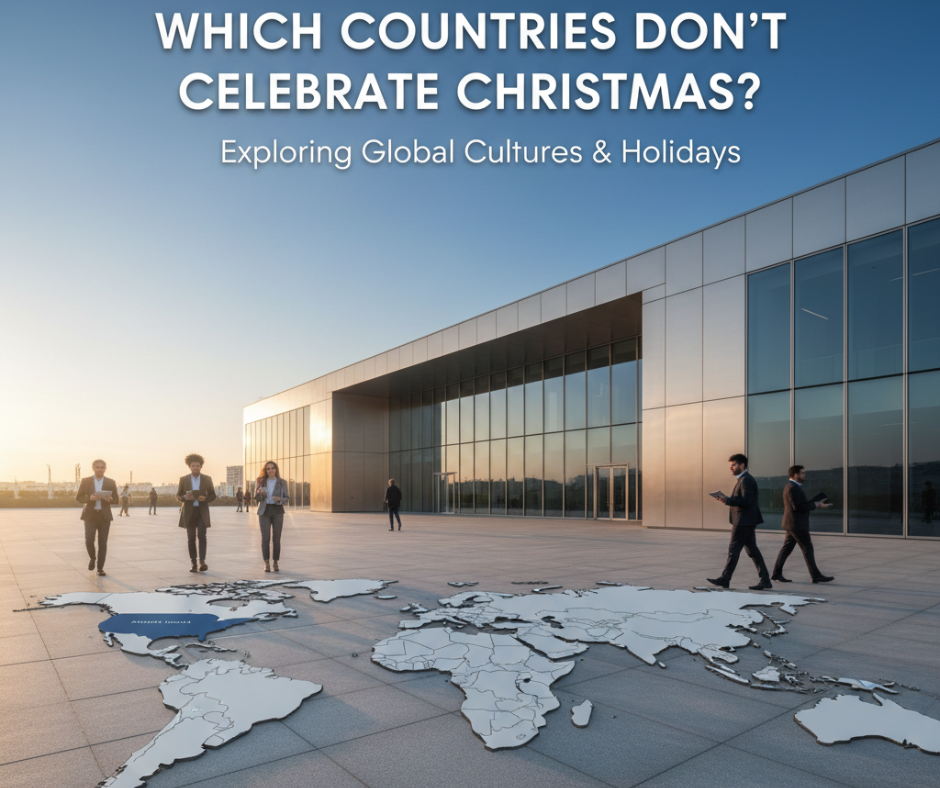Christmas is one of the most widely recognized and celebrated holidays across the globe, marking the birth of Jesus Christ and a season of joy, family gatherings, gift-giving, and festive decorations. Yet, Christmas is not universally observed. In fact, several countries—due to religious, cultural, or political reasons—either do not celebrate Christmas at all or do so in very limited or non-public ways.
This article explores the countries where Christmas is not celebrated, the reasons behind it, and alternative festivals and holidays that these nations observe instead.
The Global Popularity of Christmas
Before diving into countries that skip Christmas, it’s important to recognize that Christianity is the world’s largest religion, with over 2 billion adherents. For many, Christmas is a core religious and cultural event. It’s celebrated publicly with holidays, special religious services, and festive cultural traditions.
However, the world is diverse, with large populations following other religions such as Islam, Hinduism, Buddhism, and secular or indigenous belief systems. Consequently, not all nations observe Christmas as a holiday.
Countries Where Christmas is Not Celebrated
1. Saudi Arabia
As the birthplace of Islam, Saudi Arabia is one country where Christmas is officially not celebrated. The government prohibits public observance of Christmas because it is deem incompatible with Islamic traditions. Public display of Christmas symbols, trees, or decorations is generally banned, and Christmas is not a public holiday.
Private celebrations by non-Muslim expatriates might occur discreetly, but public festivities are absent. The government often enforces strict regulations to maintain religious uniformity.
2. North Korea
In North Korea, Christmas is outright bann. The country’s government does not tolerate religious observances, promoting state atheism and loyalty to the regime instead. Christmas-relate activities, decorations, or celebrations are illegal and can result in penalties.
This suppression reflects North Korea’s broader stance on religion and public expression, making Christmas foreign to the nation’s cultural fabric.
3. Somalia
Somalia, a predominantly Muslim country, outlaw Christmas celebrations in 2015 after adopting stricter Islamic laws (Sharia). Public Christmas festivities, decorations, or observances are prohibit, aligning with the country’s religious governance framework.
Christmas is effectively absent from public and official life, though private observances by minorities might persist.
4. Tajikistan
Tajikistan does not officially celebrate Christmas publicly, discouraging foreign or Christian customs as part of preserving national tradition and identity. The government restricts public decorations or festivities relate to Christmas, emphasizing native cultural and religious practices.
Christmas trees and gift exchanges in schools are bann, and public celebrations are virtually non-existent.
5. Bhutan
Bhutan, a Himalayan Buddhist kingdom, traditionally does not celebrate Christmas. The holiday is not recognize culturally or officially, as the majority of citizens follow Buddhism with its own rich tapestry of festivals and spiritual observances.
Christmas might be observe privately by small Christian communities or expatriates but lacks public presence.
Other Countries with Limited or No Christmas Celebrations
-
Afghanistan, Libya, Mauritania, Yemen, and several other Muslim-majority countries do not mark Christmas officially.
-
Countries such as China and Japan do not treat Christmas as a public holiday but often embrace some secular aspects like decorations in urban centers.
-
Certain Central Asian nations, including Uzbekistan and Kazakhstan, recognize Christmas in specific forms, often link with New Year celebrations among diverse ethnic groups.
Reasons for Not Celebrating Christmas
Several factors contribute to the absence of Christmas celebrations in these countries:
Religious Reasons
Many Muslim-majority countries follow Islamic laws which prohibit non-Islamic religious holidays from public observance, viewing Christmas as a Christian religious event incompatible with Islamic faith.
Political and Cultural Protectionism
Some governments discourage or ban Christmas to protect national identity, prevent foreign religious influence, or maintain social cohesion within predominantly non-Christian populations.
Historical and Social Context
Communist or atheist regimes like North Korea have historically suppress religious observances, including Christmas, to promote political ideology.
Alternative Festivities in Non-Christmas Countries
Even if Christmas is not celebrated, most of these nations observe other significant holidays:
-
Eid al-Fitr and Eid al-Adha: Major Islamic holidays celebrate with prayers, feasting, and gift-giving.
-
Diwali: The Hindu festival of lights celebrate in several Asian countries.
-
Lunar New Year: Celebrated in East Asia with vibrant cultural festivities.
-
Losar: Tibetan New Year celebrated in Bhutan and Himalayan regions.
These festivals hold deep cultural and spiritual importance and fulfill similar social and familial roles as Christmas in Christian nations.
Read More: Which Country Celebrates Christmas the Longest? Exploring the World’s Most Extended Holiday Season
Conclusion
While Christmas is a globally recognized holiday, it is not universally celebrate. Countries like Saudi Arabia, North Korea, Somalia, and Tajikistan, among others, either do not observe Christmas publicly or suppress the holiday due to religious, political, or cultural reasons.
Understanding these distinctions fosters respect for the world’s rich cultural and religious diversity. It reminds us that while the holiday season may look very different around the globe, humans everywhere share aspirations for joy, peace, and togetherness in their own unique traditions.



Add a Comment